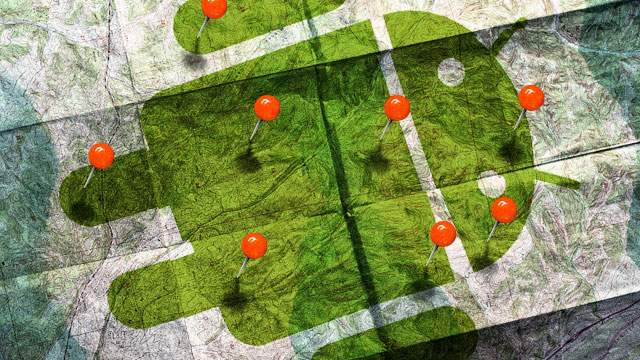After this week's disturbing revelation that iPhones and 3G iPads keep a log of location data based on cell tower and WiFi base station triangulation, developer Magnus Eriksson set out to demonstrate that Android smartphones store the exact same type of data for its location services. While the data is harder to access for the average user, it's as trivial to access for a knowledgeable hacker or forensics expert.
On Wednesday, security researchers Alasdair Allan and Pete Warden revealed their findings that 3G-capable iOS devices keep a database of location data based on cell tower triangulation and WiFi basestation proximity in a file called "consolidated.db." The iPhone, as well as 3G-equipped iPads, generate this cache even if you don't explicitly use location-based services. This data is also backed up to your computer every time it is synced with iTunes. Warden wrote an application which can find, parse, and map the location data on a user's computer if the iOS device backups are not optionally encrypted.
Allan and Warden's findings sparked major concerns over privacy, leading some to speculate that Apple was tracking all iPhone users. The controversy prompted letters from Sentator Al Franken (D-MN) and US Representative Ed Markey (D-MA) demanding that Apple answer questions about how the data is collected, how or when it is sent to Apple, and how Apple could protect a user's privacy.
iOS data forensics expert Alex Levinson later on Wednesday revealed that the consolidated.db file was neither new—iOS has kept the same information in the past, just in a different database—nor was its existence necessarily a secret—Levinson had collaborated on a book with fellow security researcher Sean Morrisey that discussed consolidated.db in detail.
Eriksson suspected that his Android device collected similar information. "Following the latest internet outrage to the revelation that iPhone has a cache for its location service, I decided to have look what my Android device caches for the same function," he wrote in a note on GitHub. He put together an application similar to Warden's based on open source cache parsing code, which extracts data from "cache.cell" and "cache.wifi" and displays it on a map.



 Loading comments...
Loading comments...
